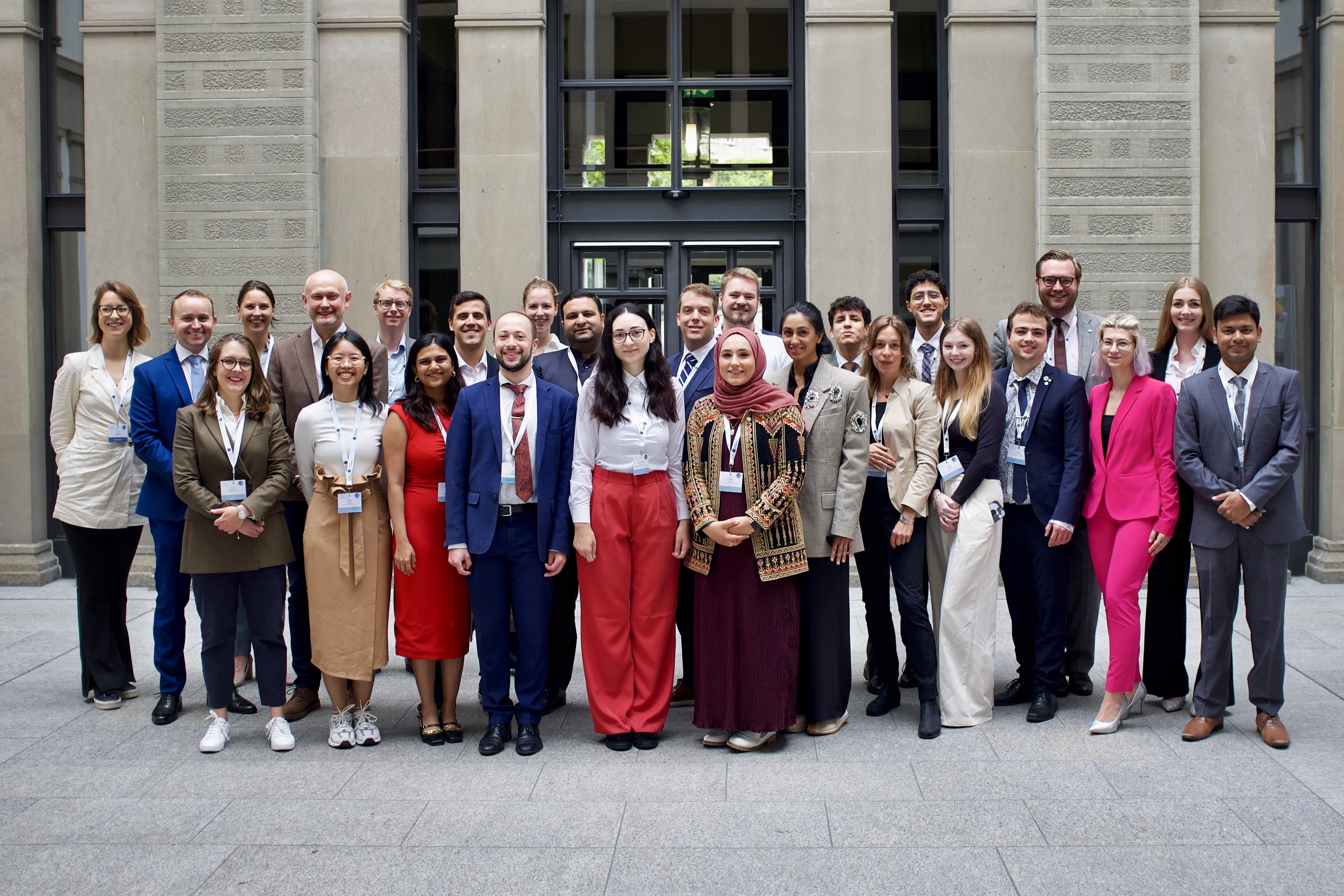Over the summer, we had the remarkable opportunity to attend the 11th Global Negotiation Conference (GNC) in Zurich, hosted by the Institute for Global Negotiation at the University of Zurich. With its breathtaking landscapes and vibrant city life, Zurich provided the ideal backdrop for an enriching and unforgettable experience. The week-long conference was an intensive crash course on the basics of negotiation and featured a simulation. Seven groups of graduate students from around the world gathered to represent diverse voices in the debate about global governance of artificial intelligence (AI). We felt immense pride in representing Lee Kuan Yew School of Public Policy (LKYSPP) and, more importantly, in amplifying voices from the Global South at this prestigious conference. At a time when perspectives from Asia and developing regions are crucial in shaping global discussions on AI, we were motivated to contribute meaningfully to the negotiation simulation.

The conference kicked off with a rigorous bootcamp on negotiation theory and practice, facilitated by international diplomats and field experts, laying the foundation for the high-stakes simulation that followed. We were introduced to pivotal concepts like ZOPA (Zone of Possible Agreement) and BATNA (Best Alternative to a Negotiated Agreement), which we later applied in the negotiation simulation. It was particularly inspiring to hear from international diplomats, legal professionals, and peace negotiators who shared their real-world experiences in shaping policies through diplomacy, mediation, and negotiation. Connecting with these distinguished individuals deepened our understanding of how global negotiations are practically conducted to shape international trade, peace, and security.
The centerpiece of the GNC was our negotiation simulation aimed at establishing norms for the global governance of AI technologies. The countries represented at the negotiation table included France, India, China, Russia, Iran, the United States, and Estonia. Our team was honoured to represent the United States in the negotiation simulation. We were mindful of how we exercised power and exerted pressure on other teams in the negotiation process, and our coalition-building efforts quickly extended beyond national boundaries. We forged a strong alliance with Team China, Russia, Iran, and Estonia—an unexpected but powerful coalition. Through intense discussions, we ratified a joint framework for governing AI that addressed both the national security concerns of individual member states and the ethical, policy, and regulatory challenges shared by all parties in the negotiation.

What made this conference truly exceptional wasn’t just the topic, but the people. We met participants from across Asia, Europe, the Middle East, and the Global South, each contributing their unique perspectives. These exchanges were not only enlightening but also a reminder of the importance of including diverse voices when addressing global challenges. The opportunity to learn from others' experiences in different cultural and political contexts was one of the most rewarding aspects of the GNC. Our sincere thanks go to the organisers, who ensured the event ran seamlessly, and to everyone who worked tirelessly to ensure that voices from every region—particularly Asia and the Global South—were heard and represented.

Another unique feature of the GNC was its emphasis on practical solutions, pushing beyond strictly academic or theoretical discourse. We left Zurich equipped with new skills and a deeper appreciation of how diplomacy can bridge differences, even in the most complex negotiations. Our passion for AI governance and technology policy was invigorated by the experience, inspiring us to continue contributing to these important global discussions.

The GNC will remain a defining moment in our journey as public policy students at LKYSPP. The lessons we learned will undoubtedly shape our approach as we continue to bridge the gap between technology, ethics, and governance in the years to come. This transformative experience would not have been possible without the support of the Lee Kuan Yew School of Public Policy’s Conference Support Scheme and the generous scholarship provided by the Tobias W. Langenegger Foundation, to whom we are deeply grateful. Moving forward, we aim to maintain our lasting connections with the colleagues and peers we met during the conference.